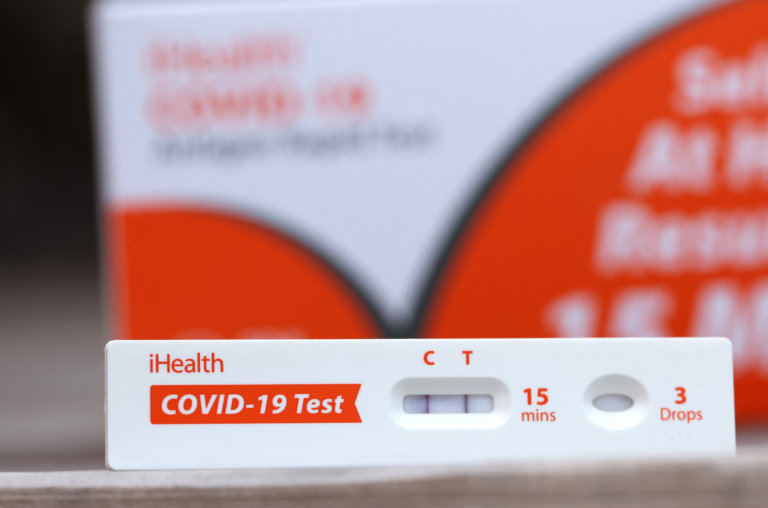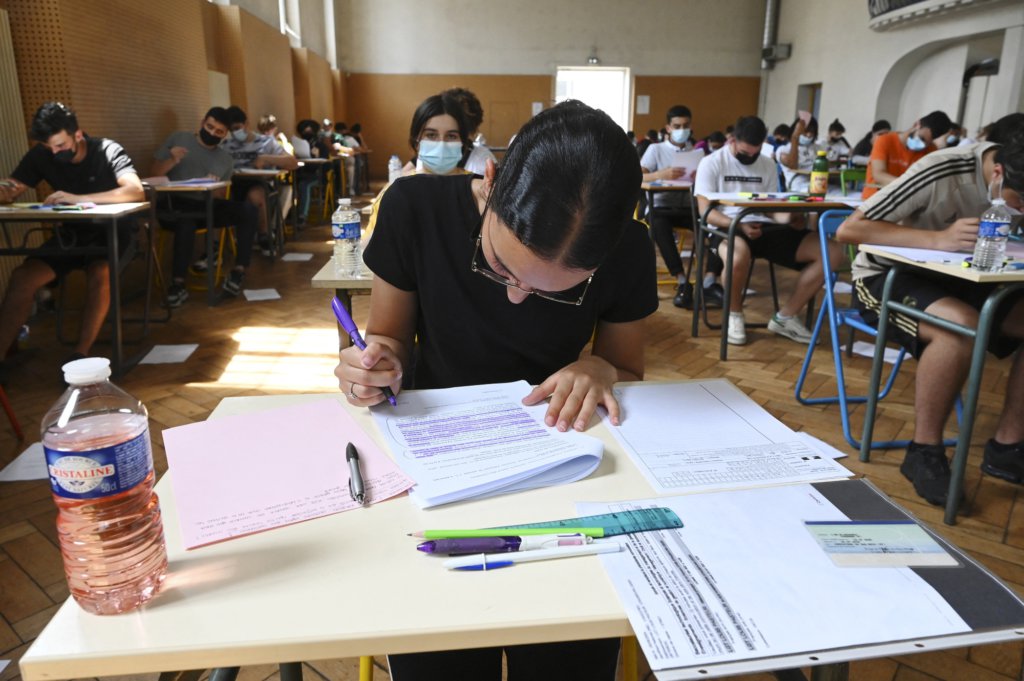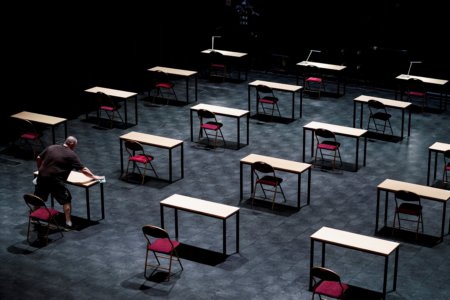
Picture this: you have been burning the midnight oil, doing multiple past papers and sacrificing plenty of personal time to revise for your A Levels. The worst-case scenario you could think of hits you just days before you’re scheduled to take your paper: you start experiencing symptoms of high fever during exam season.
Your instinct tells you to immediately perform a COVID-19 test. The worst-case scenario? You test positive. The alternative scenario? You test negative, but still report general unease that could impair how well you perform on your exams.
So, what steps should you take if you test positive for COVID-19, or experience high fever during exam season?

You’ve kept your nose to the grindstone, but the worst has happened: you’re experiencing a high fever during exam season. Here’s what you can do. Source: Patrick Domingo/AFP
High fever during exam season: What to do if you’re based in the UK
According to the UK Health Security Agency (UKHSA), if you are taking your A Levels and have a high temperature on the day of your exams, you are advised to stay at home and avoid contact with others, until you no longer have a high temperature and are well enough to attend your exams.
It is not compulsory for you to provide the result of your COVID-19 test, however, you, your parents or your carers will likely need to fill in a self-certification form.
You can expect your school or college to contact you if they require further evidence or clarification regarding your circumstances.
File a ‘special consideration’ application
Once the details of your self-certification form are satisfied, your school or college will file a special consideration application on your behalf to one or more of your exam boards.
This is an important step. If your centre doesn’t make the special consideration application, you could receive a “0” for the missed exam.
Ofqual, the department that regulates qualifications, exams and tests in England, defines special consideration as any adjustments given to you in the event that you are afflicted by some form of illness, injury or circumstances which are beyond your control.
Your circumstances must significantly impede your ability or demonstrate your limitations in doing an assessment. There must be sufficient evidence provided to your exam board which renders you unfit to take the exam on the scheduled assessment date.
for any student taking GCSE or A level Drama Component 3 this summer, here is some useful guidance on what students should do if they feel unwell or receive a positive Covid test result while taking their exams https://t.co/IfWjJFMfWl@open_drama_uk @National_Drama @DramaMatters1
— Paul Webster (@PearsonPerfArts) April 13, 2022
According to the UK government website, special consideration is only applicable for things that happen immediately before or during an exam or assessment that has a material effect on a student’s ability to take that exam or assessment, or on how they performed.
You cannot apply for special consideration if your education was disrupted, either due to the COVID pandemic or other reasons not highlighted by the UK government. To qualify, you must also show that you have fully prepared for your exam and have covered the entire course.

The UK government website notes that students should ask their school, college, or exam centre to make an application for special consideration and complete any forms they ask students to do. Source: Frederick Florin/AFP
Special consideration varies according to exam boards
Each exam board sets their own terms for administering special consideration applications from students. For instance, the Assessment and Qualifications Alliance (AQA) exam board says students can be absent from an exam due for a valid reason.
An AQA spokesman was quoted saying by Birmingham Live: “In these cases, a mark is calculated for the missing unit provided the student has completed enough of the specification to meet the minimum requirements specified by JCQ (Joint Council for Qualifications). This is known as a ‘z-score’.”
The spokesman added that the calculation of the missing mark takes into account the student’s performance in the other comparable units of the exam and the national average for those units.
“The assumption is that the student will perform as well — no better, no worse — on the paper with the missing mark compared to their performance on the other papers when compared to the national cohort,” he said.
In April, the Department for Education said exams have been space out by a minimum of 10 days between the first and last exam for a particular subject, to reduce the chance of students missing out on all exams for the subject due to an illness.










